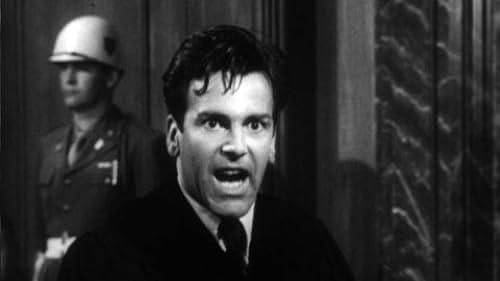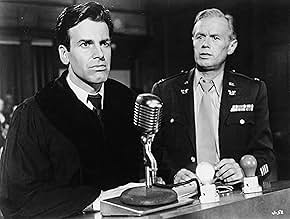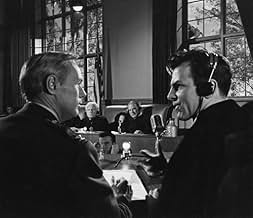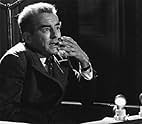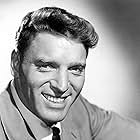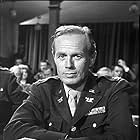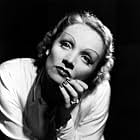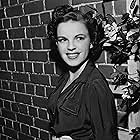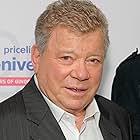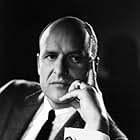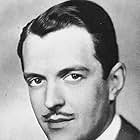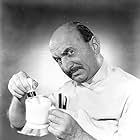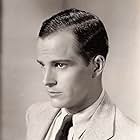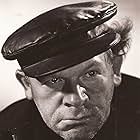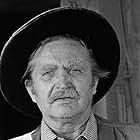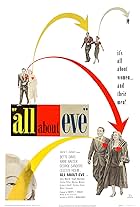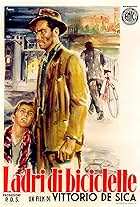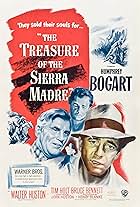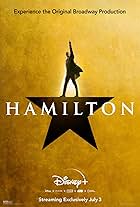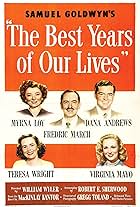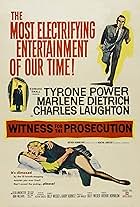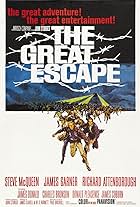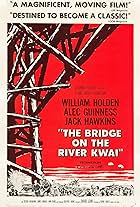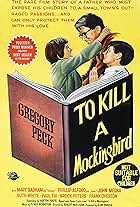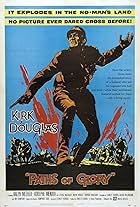Fictionalized depiction of the 1947 Judges' Trial, the third of twelve trials of Nazi war criminals conducted by the American occupying forces in Nuremberg, Germany, in which former judges o... Read allFictionalized depiction of the 1947 Judges' Trial, the third of twelve trials of Nazi war criminals conducted by the American occupying forces in Nuremberg, Germany, in which former judges of Nazi Germany were tried for their actions.Fictionalized depiction of the 1947 Judges' Trial, the third of twelve trials of Nazi war criminals conducted by the American occupying forces in Nuremberg, Germany, in which former judges of Nazi Germany were tried for their actions.
- Won 2 Oscars
- 16 wins & 26 nominations total
Storyline
Did you know
- TriviaSpencer Tracy's eleven-minute closing speech was filmed in one take using multiple cameras shooting simultaneously.
- GoofsAt the end of the movie a graphic states that 99 people were tried and sentenced at Nuremberg and that by the date of the movie (1961) none remained in prison. Some critics have pointed out that Nuremberg defendants Rudolf Hess and others were still imprisoned in Spandau. However, Hess and the other major defendants were tried by the International Military Tribunal (with judges and prosecutors from each of the four victorious Allied powers). The caption in the film states that the statistic refers only to the Nuremberg trials "held in the American sector." By 1961, all of the defendants sentenced in the American trials were indeed free; the graphic is therefore correct.
- Quotes
[last lines]
Ernst Janning: Judge Haywood... the reason I asked you to come: Those people, those millions of people... I never knew it would come to that. You *must* believe it, *You must* believe it!
Judge Dan Haywood: Herr Janning, it "came to that" the *first time* you sentenced a man to death you *knew* to be innocent.
- ConnectionsFeatured in Marlene (1984)
As for the trial itself, the defense argument was along these lines: they were judges (and therefore interpreters), not makers of law. They didn't know about the atrocities in the concentration camps. At least one of them saved or helped many by staying in their roles and doing the best they could under the heavy hand of the Third Reich. They were patriots, saw improvement in the country when Hitler took power, but did not know how far he would go. If you were going to convict these judges, you would have to convict many more Germans (and where would it stop?). The Americans themselves practiced Eugenics and killed thousands and thousands of innocents at Hiroshima and Nagasaki. The one small weakness I found was that the defense never makes the simple argument that these judges were forced to do what they did, just as countless others in Germany were, and would have been imprisoned or killed themselves had they not complied. Anyone who's lived under a totalitarian regime may understand, or at least empathize.
I'm not saying I bought into these arguments or that one should be an apologist to Nazis, but the fact that the film presented such a strong defense was thought provoking. How fantastic is it that Spencer Tracy plays his character the way he does – simply pursuing the facts, and in a quiet, thoughtful way. It's the best of humanity. How heartbreaking is Burt Lancaster's character, admitting they knew, admitting their guilt, knowing that what happened was horrible and that they were wrong, and yet seeking Tracy's understanding in that scene in the jail cell at the end – intellectual to intellectual - and being rebuked. Even a single life taken unjustly was wrong. Had the Axis won the war, I don't know which Americans would have been on trial for war crimes for the fire bombings of Dresden and Tokyo, or for dropping the atomic bombs, but the film makes one think, even for a war when things were seemingly as black and white as they could ever be. The particulars of this trial were fictionalized, but it's representative of what really occurred, and it transports you into events 70 years ago which seem so unreal today – and yet are so vitally important to understand, and remember.
- gbill-74877
- Sep 10, 2017
- Permalink
Details
- Release date
- Country of origin
- Languages
- Also known as
- Sojenje v Nürnbergu
- Filming locations
- former Reichsparteitag area, Nuremberg, Bavaria, Germany(After the first session Judge Haywood walks through these former Nazi Party Rally Grounds)
- Production company
- See more company credits at IMDbPro
Box office
- Budget
- $3,000,000 (estimated)
- Gross worldwide
- $12,180
- Runtime2 hours 59 minutes
- Color
- Aspect ratio
- 1.85 : 1
Contribute to this page


